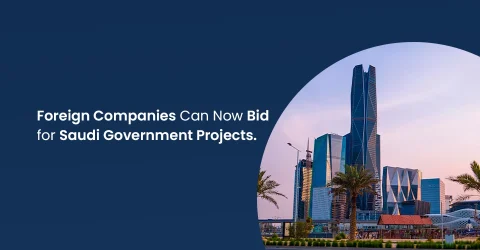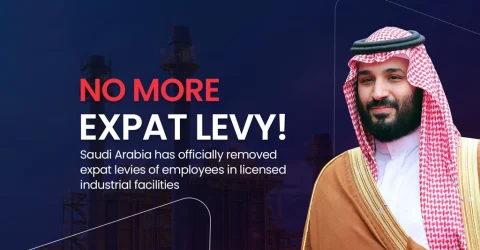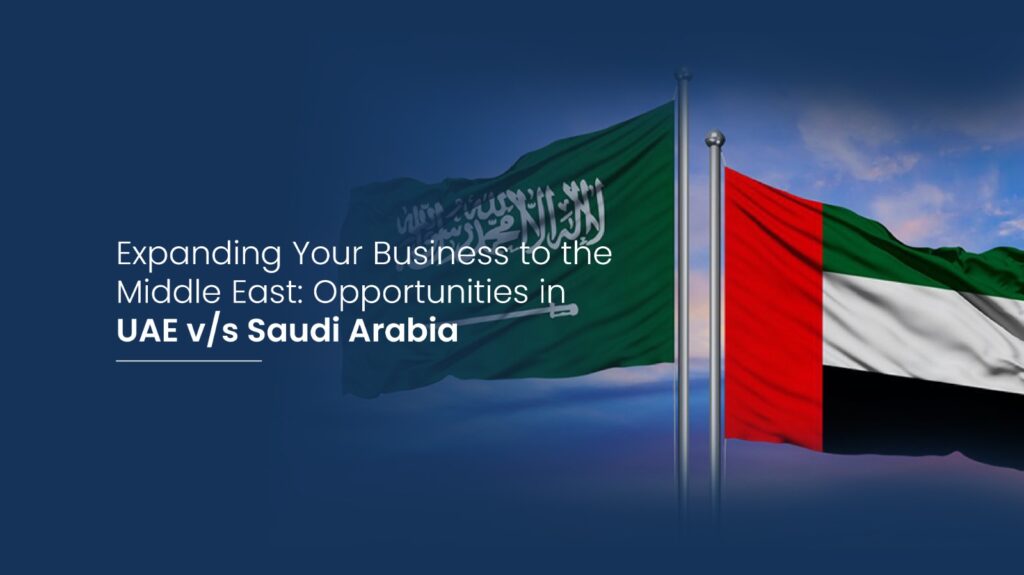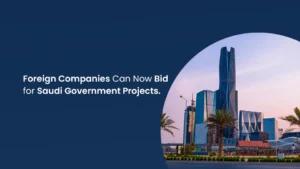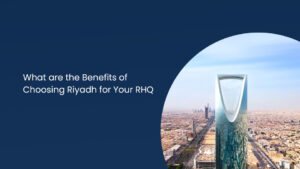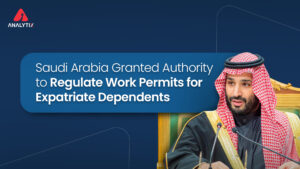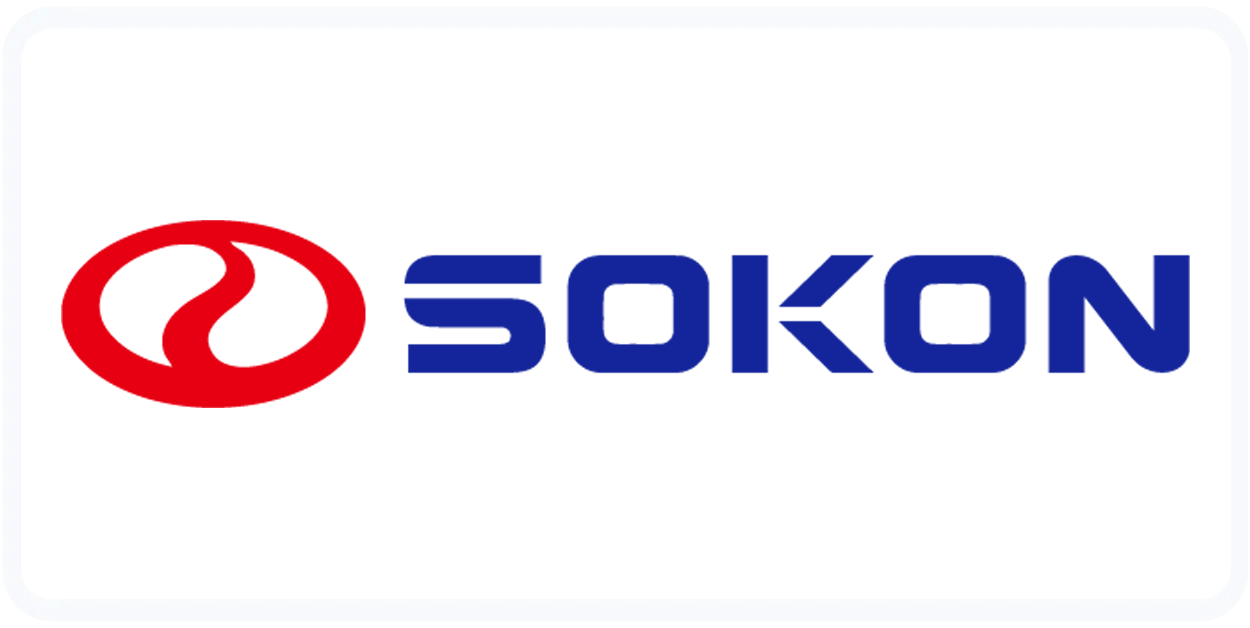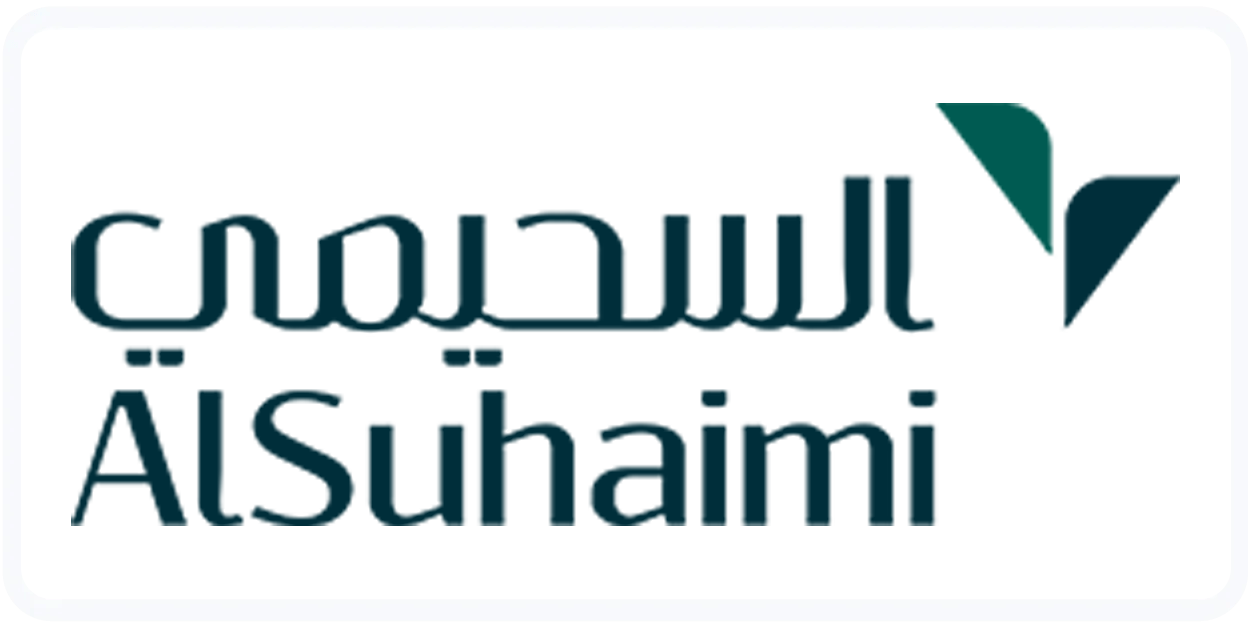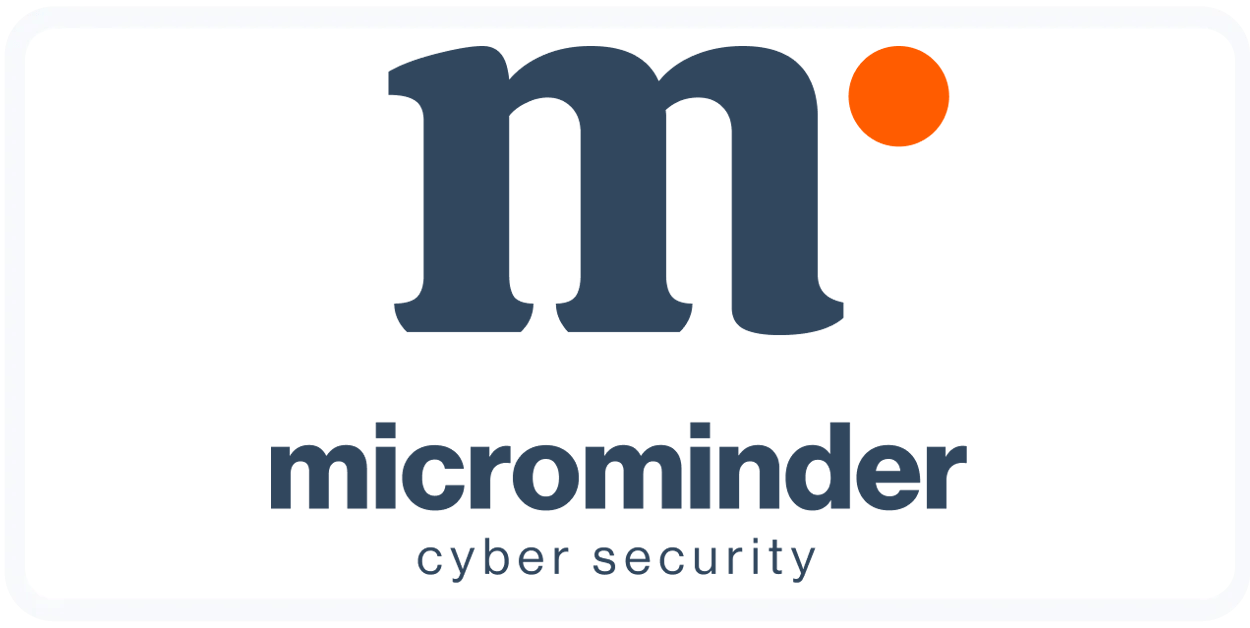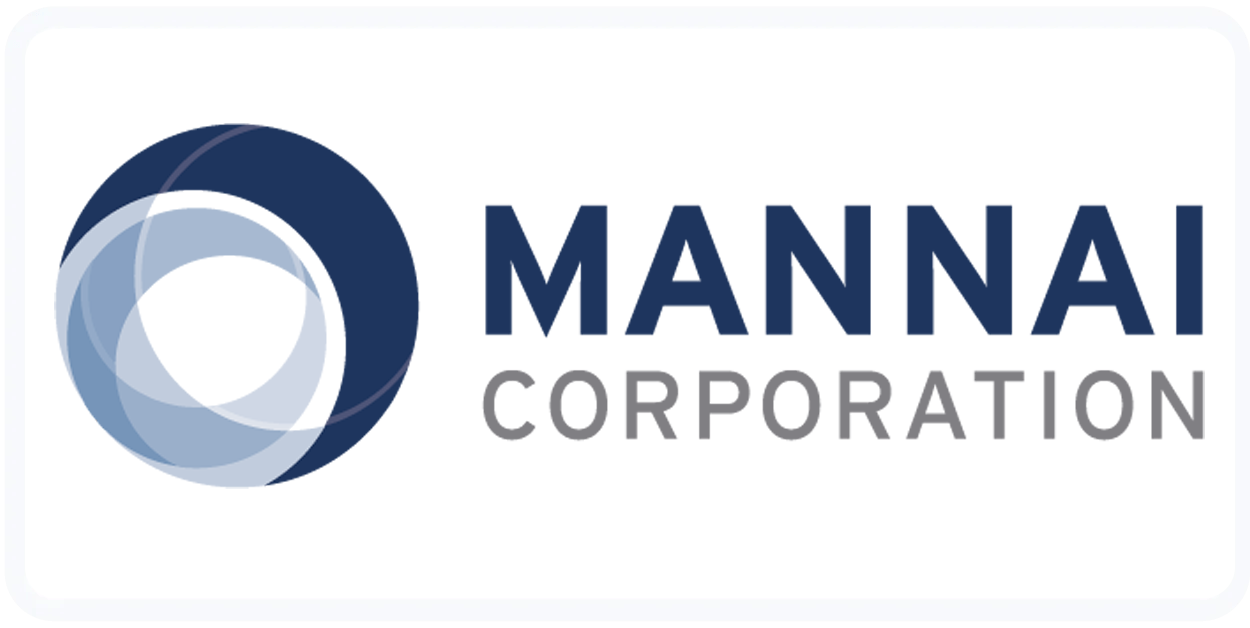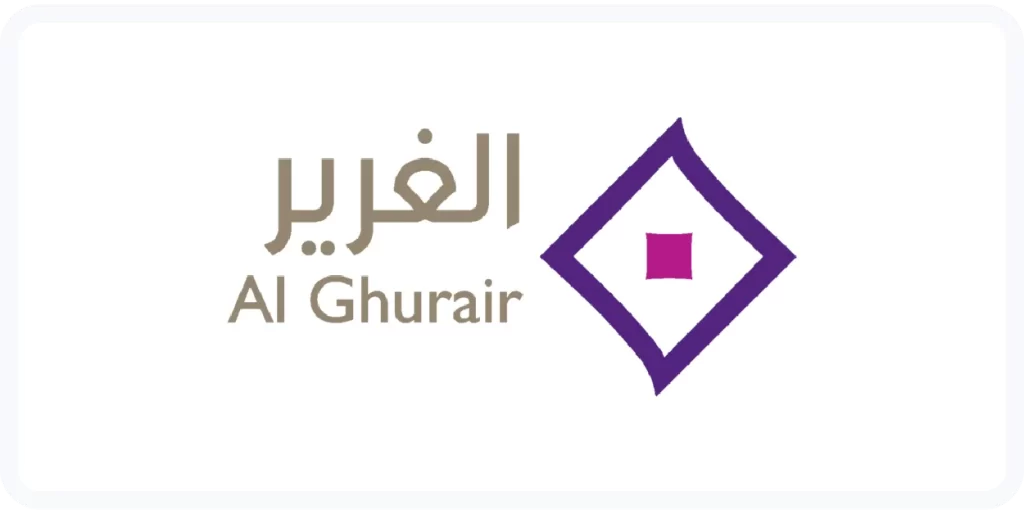The Middle East presents great potential and abundant opportunities for business from every corner of the globe. Among the regions in this highly developed region, the UAE and Saudi Arabia turn out to be two of the most favored destinations for entrepreneurs and multinational companies
Both countries have indeed invested so much in ensuring business-friendly environments and economic diversification, making these some of the most coveted destinations for setting up any business. With over ten years of experience as the leading business consultancy in the Middle East, Analytix has seen the gradual development of both markets to become global business hubs.
Whether you are thinking of forming a startup or expanding a well-established company, this is important to understand the special advantages of the UAE and Saudi Arabia. The guide particularly focuses on prime factors, the size and growth potential of markets, taxation, ease in setting up and running businesses, and cultural matters relating to it to help pinpoint the most eligible destination for your dream business.
Market Growth and Opportunities in Saudi Arabia v/s UAE
On distinct but equally tempting grounds, Saudi Arabia and the UAE have not failed to amaze their audience where market size and growth potential are concerned. Each country has made a new place for itself in the Middle East in terms of transformational growth and dynamic economic landscapes.
Saudi Arabia, being the biggest economy in the Middle East, houses over 35 million people, providing a potential market for several businesses targeting mass-market sectors like retail, e-commerce, food, hospitality, and telecom. Vision 2030 is the reform plan of the Kingdom which sets the groundwork for the diversification of the economy toward women empowerment, innovation, and creating space for foreign investment.
Saudi Arabia, the biggest economy in the Middle East, concentrates on over 35 million population, which poses a large demand for several companies aiming to enter the mass consumption segments such as retail, e-commerce, food, hotels, and telecommunications. Vision 2030 is the reform plan of the Kingdom, through which the preparation for the transition of the Kingdom’s economy is made gradually towards diversification, women empowerment, technological advancement, and building spaces for foreign investment.
One of the great results of these reforms is the number of women-owned business enterprises that are growing in the tech, retail, and service sectors. More woman are entering into the workforce and the entrepreneurial environment thus creating new needs in the marketplace that are likely to fuel their ever-expanding financial liberation.
The younger and family-oriented population of Saudi Arabia has a huge demand for educational requirements, as well as leisure and entertainment, and healthcare needs. Besides mega-events such as Expo 2030, FIFA World Cup 2034 will also fuel strong growth in the sectors of construction, technology, and entertainment, in turn backed by radical transformative infrastructural projects.
While smaller in numbers, the UAE is a haven for billionaires and foreign investors and stands out with respect to high GDP per capita. Here, the country has developed very strong premium historic customer bases, potentially making it the best destination for companies selling high-end luxury products, high-end tourism services, and even aviation and entertainment.
A high level of development and increasing expatriate population in the UAE makes the country a more fertile ground for sectors such as finance, real estate, and international tourism. With international standards of airport and shipping ports, other world-class infrastructures, and their global connectivity, businesses can see the UAE as a gateway to the rest of the Middle East.
Thus, while Saudi Arabia is dynamically growing and future-focused, the UAE is steady and effectively managed, with a business-friendly landscape, and has a track record of continued innovation. The liberalization of the Saudi Arabian economy signifies the beginning of long-term, sustained growth, and the UAE with an already developed infrastructure and a strategic international perspective remains a magnet for businesses seeking a solid base in the Middle East.
However, Saudi Arabia and the UAE open doors for businesses planning for expansion, with their unique advantages, different strategies, and goals.
Simplifying Business Setup and Regulations: Saudi Arabia vs UAE
For setting up a business in the Middle East, Saudi Arabia, and the UAE requires two different approaches. Both have advantages unique from one another depending on your own priorities. Understanding the regulations and processes, while also looking into incentives in these two will be the stepping-stone to making the right choice on where to set up your business operations.
The UAE has for a long time received applause for the hassle-free environment for business undertakings. The business setup can be completed within days with minimal bureaucratic procedures. This efficiency is accompanied by a wide range of ownership structures that will go well with the needs of foreign investors. The beauty of the UAE is that it offers great flexibility, no matter if you are registering as an individual entrepreneur or a corporate company.
Among the most remarkable features of the UAE’s business environment are its free zones. These specialized zones are available for industries like technology, media, healthcare, and logistics. The advantages include:
- Full foreign ownership: Investors don’t have to partner with local sponsors to enjoy their benefits.
- Tax incentives: Many free zones exempt foreign firms from corporate and personal income taxes.
- Sector-specific support: Design both infrastructure and networking for industries like fintech, education, and e-commerce.
- Convenience of repatriation: All businesses will have 100% repatriation of capital and profits.
The economy has Dubai Internet City, as well as Abu Dhabi Global Market as examples of prominent free zones, which tend to attract technology and financial services startups and multinational company operations. Thus businesses will gain from lower costs and industry-focused ecosystems driving growth.
Historically, Saudi Arabia has had a more detailed regulatory framework, especially with regard to foreign investors. Foreign businesses looking to operate in the Kingdom must comply with the requirements like the registration as corporate shareholders which involves broad-range documentation from parent companies. While this may seem quite extensive compared to the UAE, these reforms are an indication of clarity and a move towards accessibility and investor-friendliness.
Saudi Arabia has established several programs to limit bureaucratic hurdles and ease the way of doing business. Some of the key initiatives are:
- The Saudi Investment Law: This Act provides protection for foreign investors while encouraging direct investments in the Kingdom.
- Reduced requirements: Streamlining processes for simplifying the documentation regarding business registration.
- Vision 2030 alignment: The government intends to support all industries such as renewable energy, entertainment, and technology with specific incentives in order to attract global players.
In addition, the Kingdom recently opened up the sectors for full foreign ownership, which is changing the business environment. Thus, these changes, coupled with the strategic focus on diversification under Vision 2030, are making the Kingdom of Saudi Arabia a more attractive destination for international companies.
Key differences to consider:
Both countries are working hard to improve their regulatory frameworks.
However, the differences that may influence your decision are:
- Faster Setup Speed: UAE procedures are quicker and more uncomplicated, ideal for firms that want to set up fast.
- Documentation: Foreign corporate entities in Saudi Arabia need to have extensive documentation.
- Incentives: UAE free zones extensively provide the benefit of tax and flexibility, while Saudi Arabia offers plentiful incentives that align with Vision 2030 and inspire businesses.
- Ownership Structures: Nowadays, both countries allow full foreign ownership in certain sectors, but the UAE has been more flexible in this regard for a longer time.
Making the Right Choice
For businesses looking for an easy and quick entry point in the Middle East, the UAE’s streamlined procedure and free zones make it an immensely suitable option. Whereas, the booming economy of Saudi Arabia coupled with greater market size and strategic reforms provides vast opportunities to businesses willing to navigate the country’s evolving regulatory framework.
Both the established infrastructure of the UAE and the potential development of Saudi Arabia unleash extensive opportunities for businesses in a dynamic MiddleEastern market.
Understanding the Costs of Running the Business
Understanding the cost dynamics for running a business in the Middle East is key to business expansion within the region. The two economies of the region, the UAE and Saudi Arabia hold
different landscapes for businesses. The two countries have specific opportunities and their cost structures arise from the different infrastructures, focus of the markets, and operational configurations.
UAE has long prided itself on cost-effective avenues that suit businesses of all sizes, including startups as well as small and medium-sized enterprises (SMEs). On easy and affordable free zones, businesses are enabled to mark entry into the markets quite smoothly.
For instance, a business can rent office space and get licenses in certain free zones at around $5,000-$7,000 a year. Masdar City in Abu Dhabi is one further free zone that makes accessibility easier through discounted package deals for foreign-born start-ups costing sometimes just $1,000 annually. With solutions this inexpensive, businesses can focus on building operations without giving too much thought to upfront costs.
UAE also offers a supporting environment that covers various auxiliary services including legal support, marketing companies, and co-working spaces and these services are available at a rather affordable cost. Besides this, it also relieves operational pressure and ensures that the businesses are equipped with the best supply in terms of services necessary for their functioning.
Apart from that, the infrastructure of the country from world-class airports,ports, and road networks adds to the overall cost-effectiveness of doing business. With this type of seamless connectivity, UAE makes it easier for entities to manage the supply chain, logistics, and international trade without incurring too much in terms of costs.
Saudi Arabia offers a different cost structure that reflects a long-term focus on broader business growth and market opportunity. Though the initial setup costs might seem higher, they are justified because of a larger market size, abundant opportunities, and a strategic vision toward truly sustainable growth of businesses.
Operational expenses in Saudi Arabia include factors like office rentals, legal requirements, and investment in infrastructure. Office rental costs in major cities like Riyadh and Jeddah are higher and demand compliance with local laws, which include extra documentation and additional fees. However the advanced level of market opportunities helps to balance that burden.
This demographic population of over 35 million offers an enormous marketplace for businesses, especially retail, healthcare, and family-related services. Emerging industries such as renewable energy, sports, and entertainment would also form part of Vision 2030 and therefore create market opportunities for new businesses with the willingness to operate and navigate with the cost structure involved.
Also Read: Cost of Starting a Business in Saudi Arabia
Key Takeaway
While analyzing the cost of doing business in the UAE and Saudi Arabia, it is important to understand that the structures of both countries are meant to suit different business interests.
The UAE forms an environment that doesn’t entail high start-up costs, which attracts those businesses that are searching for the most cost-effective way to expand.
Saudi Arabia has a large market and increasing industries, so the firms willing to invest more in their operations and standing to get better returns on their investments in the market and evolving sectors are offered opportunities for higher ROI.
Expenses incurred when operating in the Middle East vary depending on the priority within the chosen market. While the UAE tries to promote ease of market entry, simplicity, and affordable
operational costs, Saudi Arabia aims at scalability, sustainability, and potential for long-term growth.
It’s crucial to assess the goals of your business, the models of operation, and the audience, that will enable you to determine the most suitable market.
Looking to Start a Business in Saudi Arabia?
Saudi Arabia presents great potential in the form of a developing economy supported by new government reforms and aspirations toward the highly ambitious Vision 2030. The environment is just set for any kind of business preparing to grow into technology, entertainment, and sports in this developing and very promising market.
This, however, would call for some hurdles, which include handling regulations, market analysis, and establishment. Thus, the questions arose when, with whom, and in what way such support could be obtained with a sufficient level of expertise and understanding. This is where Analytix comes in!
Analytix specializes in smoothing the way for businesses towards establishment and growth in Saudi Arabia. With more than a decade of proven excellence in this field and a more in-depth understanding of local regulatory requirements, we smoothen the entire process, be it the business incorporation, licensing, or compliance.
Our services include but are not limited to, initiation or incorporation, with professional services in accounting, tax, auditing, and GRO/PRO services that ensure the smooth operation, growth, and prosperity of your business. Therefore, we can make sure you receive the right advice and support needed to fully realize your business’s potential in such a dynamic market as Saudi Arabia. Get in touch with us today!
Conclusion!
Hey!
We are glad to have you here!
Hope you had a great time reading our blog!
It is a big step to expand your business to the Middle East and both UAE and Saudi Arabia can hold a lot of opportunities specific to both micro and macro-level goals. In short, if businesses need rapid and cost-efficient entry to adopt innovative and global strategies, then the UAE can be an optimum starting point. On the other hand, the large Saudi market with the backing of Vision 2030 and sound economic reforms is the most suitable for businesses that want to expand and sustain themselves for long-term growth.
Therefore,as a prerequisite to getting your feet wet, know and understand your business strategies and test them first. Business potential can be gauged through online platforms and interaction with potential customers, building relationships with clients, or holding online seminars. Every market has its advantages and with good planning in mind, your business will surely succeed in these dynamic, emerging economies. Go ahead! The Middle East is awaiting businesses that are willing to grab and explore the amazing opportunities.


